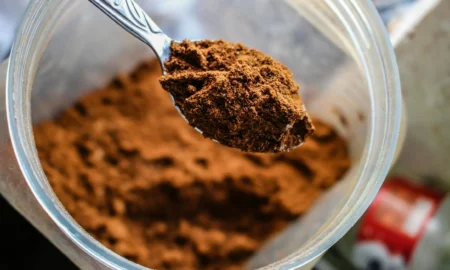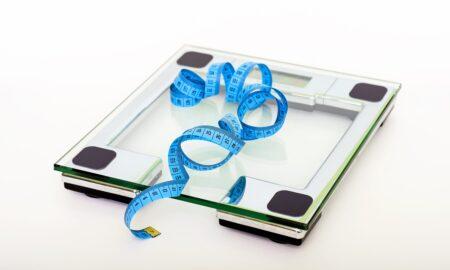Changing the macronutrient composition of an individual's diet can result in weight loss despite the ingestion of the same amount of energy. Lambert, C.P.; Frank, .L.L; and Evans, J. (2004). Macronutrient considerations for the sport of bodybuilding. Sports Med. 35(5): 317.
The inch defines a unit of length or height. The calorie defines a unit of energy'edible energy. That's where the similarity between inches and calories ends. You see, whereas an inch is an inch, a calorie is not a calorie.
In fact, there are different forms of edible energy. The three most important are carbohydrate, protein and fat.
Dietary Carbohydrate Equals Sugars and Starches
That's it in a nutshell: Dietary carbohydrates are sugars and starches. Because of their chemical makeup, they offer your body its most efficient means of obtaining glucose, a.k.a. blood sugar.
Many sugars contain at least one molecule of glucose. Starches consist of chains of glucose molecules linked together. When you eat either, your gut breaks them down, freeing the glucose so it can be absorbed into your bloodstream. That takes place at various rates, depending on the makeup of the carb. The faster that process occurs, the higher the glycemic index of the food. For instance, a bowl of soggy corn flakes has a high G.I., while a fresh grapefruit raises blood glucose levels much more slowly.
The Glucose Economy
Glucose is your most important energy source, or fuel. Some tissues just can't do without it. Your body does everything in its power to preserve its overall supply of glucose, something I refer to as the glucose economy. That includes making glucose from scratch and increasing the burning of fat, which spares the glucose economy.
Dietary Protein
Protein consists of chains of amino acids linked together. Your body chooses from an alphabet of more than 20 different amino acids to build its proteins. Examples include the hemoglobin in your red blood cells and the force-generating proteins inside your muscle cells. Your muscle cells store glucose in the form of branched chains, which is called glycogen. Muscle glycogen can play an important role in muscle growth in response to pumping iron. The bulk of muscle hypertrophy in those who lift weights, however, is usually attributed to an increase in protein content. Lifting weights stimulates the muscle cells to make more force-generating proteins, and that causes them to become bigger and stronger.
Still, you can't overlook the importance of muscle glycogen for building muscle. Witness the tremendous effect that the practice of carb loading can have on a bodybuilder's physique in the days leading up to a contest. Also, some scientists with whom I've corresponded suggest that suboptimal muscle glycogen levels may be associated with suboptimal rates of muscle protein synthesis, thereby hampering your ability to build muscle.
Amino Acids and Glucose
Dietary protein isn't just a source of amino acids, the protein building blocks. Your body can also convert some aminos into glucose. The conversion process costs energy, which is supplied by the burning of fat.
Since some cells just can't do without glucose, the ability to make it from scratch using starting materials such as amino acids or glycerol, which is found in fat, came in really handy 50,000 to 100,000 years ago, when dietary carbohydrate'or food in general'wasn't always available. Today you can take advantage of this metabolic preservation mechanism by replacing some of your carbohydrate and fat calories with protein. That exercises your metabolism by forcing it to burn more fat.
Dietary Fat to Bodyfat
Every food of natural origin contains at least some fat'even brown rice or broccoli. All plant and animal cells contain fat. Some even store fat. Chemically speaking, saturated fat is relatively unreactive, or stable. That makes it good for storage. To boot, as dietary fat already is fat, it doesn't cost much energy to prepare it for storage. Specialized cells known as adipocytes are the storage vehicles. Adipocytes occur in adipose tissue, something most of us feel we could do without.
Converting protein and carbohydrate into fat and storing it in adipose tissue costs a lot more energy than does storing dietary fat. That's the reason fat calories are more likely to be stored as fat than are protein or carbohydrate calories. The body takes the easy way. And that's why a calorie is not a calorie. Protein and carbohydrate calories cost more energy to be converted into fat, so they're less likely to wind up as bodyfat than are fat calories. Plus, fat packs more than twice as many calories per gram than does protein or carbohydrate'nine calories per gram vs. only four for protein and carbs. Replacing fat with carbohydrate and/or protein enables you to eat fewer calories without eating less food. All things considered, it makes a lot of sense to keep your fat calories lower than your protein or carbohydrate calories. ALL Certain amino acids, whether supplied by food proteins or tissue proteins, can be converted into glucose. The process eats up energy, which is supplied by the burning of fat. As you might expect, it occurs to a greater extent as your glucose economy becomes threatened (e.g., by a reduction in carbohydrate intake or with prolonged exercise and/or fasting). Thus, there's a solid thermodynamic argument as to why eating more protein than you need for building muscle can help you to lose bodyfat faster, provided you aren't taking in too many carbohydrate and/or fat calories with the protein.
So, provided you don't eat too many carbohydrate and/or fat calories, a higher-protein diet can give you a significant fat-loss advantage, as much of the extra protein can be converted into glucose in a process that's fueled by the burning of fat.
Guidelines
Calories do count, and counting calories can play an instrumental role in your bodybuilding success. You can count them indirectly (as portions, servings or points) or directly. If you aren't counting them, rest assured (or stay awake at night knowing) that they're counting you. How many calories should I be getting? Any figure I give you can only be a starting point. You'll have to tweak it up or down, depending on how your body looks in the mirror with the passage of time.
An approach I often rely on in coming up with calorie recommendations is based on real-world trial and error. I've found that the majority of resistance-exercising people do well with a daily intake in the range of 12 to 14 calories per pound of bodyweight. There can certainly be exceptions, but by and large that guidelines works.
If you're already lean (e.g., under 10 percent bodyfat), then you can start at the higher end of the range'14 calories per pound. If you need to lose bodyfat, then start at the lower end, 12 calories per pound. That recommendation also stems from my belief that you should eat for the body you want, not the body you have. Unless, of course, the body you want is the body you have. [Note: For a complete explanation of Thoburn's dietary approach, see 'Macronutrient Balance' in The R.O.B. Report, available at, www.robthoburn.com.]
How should you select your calories? I suggest getting 55 to 60 percent of your calories from carbohydrates. Your muscle cells store glucose in the form of glycogen. The less carbohydrate you eat, the lower your muscle glycogen levels will tend to be. If they get low enough, you'll experience what I call muscle deflation syndrome: Your muscles will lose size, shape and work capacity. They may even look less defined. Some researchers, such as Henning Wackerhage, Ph.D., of Dundee University in Scotland, suggest that suboptimal muscle glycogen levels may also slow muscle protein synthesis.
Another research scientist with whom I've corresponded is Charles Lambert, Ph.D., of the University of Arkansas Medical Sciences Center, who recently published a review article on the nutritional needs of bodybuilders. It's the research cited at the beginning of this feature. Lambert and his colleagues reviewed available scientific literature and came up with the recommendation that bodybuilders should 'ingest five to six grams of carbohydrate per kilogram per day for optimal muscle glycogen levels or that carbohydrate should comprise 55 to 60 percent of daily energy intake.' Based on my own real-world experiences, I think that's an appropriate recommendation. (Not that Dr. Lambert needs my thumbs-up.) As for protein, I suggest you make it 25 to 30 percent of your calories. Lifting weights encourages your body to retain more of the protein you eat in the form of new tissue protein. That means that, contrary to what's sometimes suggested, you can get by with less dietary protein. Anabolic steroids and other muscle-building drugs can enhance that effect even further.
From Lambert's article: 'Thus, from the available data it appears that the protein requirements to promote anabolism for individuals engaged in resistance training are similar to individuals who do not resistance train due to the increased efficiency of amino acid utilization. However, because of the large thermic effect of protein, we suggest that the protein intake should be 25 to 30 percent of total energy intake, which under most, if not all, circumstances, should be >0.8 grams of protein per kilogram of bodyweight per day. A 25 percent protein diet would allow for adequate carbohydrate intake to provide energy during resistance-training sessions and adequate fat to maintain levels.
'The amount of protein required for muscle mass accrual may be less for individuals on testosterone or anabolic steroids than for individuals who do not use them.'
As I explained above, there's a solid thermodynamic argument for why eating an excess of dietary protein may enable you to burn more fat. It won't necessarily help you build more muscle, but it might ignite your fat-burning metabolism somewhat. With that in mind, I think Dr. Lambert's dietary protein recommendations are appropriate. That leaves 10 to 25 percent of your calories coming from fat. Generally speaking, dietary fat has the greatest propensity for being turned into bodyfat. While some research suggests that a low intake of saturated fat may reduce testosterone levels in certain individuals, there are no indications to date that it will occur in healthy, resistance-exercising people like you and me to an extent that impairs muscle growth or exercise performance.
Based on available scientific evidence plus my own observations, I suggest that you get 10 to 25 percent of your calories in the form of fat. In any event, don't go looking for fat, as it will be there, even in lean carbohydrate and protein foods. Remember, all natural foods contain some fat. Note: For views on getting ripped in the real world, see page 118 and visit www.X-tremeLean.com.
Editor's note: For free articles on the glucose economy, register at Thoburn's Web site, www.robthoburn.com. You can also order Rob Thoburn's e-books and read free articles and scientific papers at the site. IM




















You must be logged in to post a comment Login